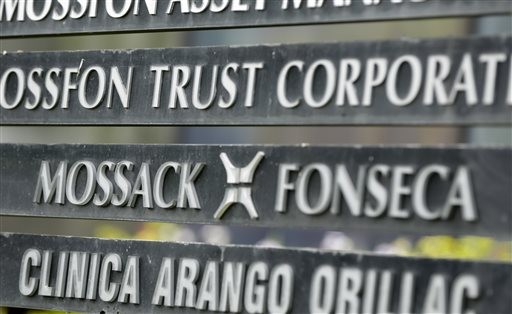Popular Reads
Top Results
Can't find what you're looking for?
View all search resultsPopular Reads
Top Results
Can't find what you're looking for?
View all search resultsIntegrity and accountability: Do they pay or not?
More than a few business professionals believe that integrity and accountability mission statements are nothing more than mere jargon with no real advantage. To the contrary, studies from all around the world prove differently.
Change text size
Gift Premium Articles
to Anyone
M
arking National Education Day last month, Research, Technology and Higher Education Minister M. Nasir emphasized the need for innovation and competitiveness in the 21st century and for reform of Indonesia’s higher education sector.
Being internationally competitive is indeed the only way to go in an era when goods and services, or social and cultural influences, are gradually becoming effectively the same in all parts of the world. To build competitiveness in the global market, participants need to continuously discover innovative ways to gain competitive advantages.
In the recent Global Competitiveness Report 2015-2016, Switzerland, Singapore and the US were rated the most competitive countries based on several indicators, such as quality of education, level of income and availability of expertise.
In this report, Malaysia ranks 18th, making it the most competitive among emerging and developing Asian countries. Indonesia, on the other hand, from the previous survey dropped three places to 37 as a result of fundamental problems related to, among other things, infrastructure, health and job market efficiency.
Part of the challenge in the age of globalization is the borderless arena where competition happens with anyone, anywhere.
The need for competitiveness to gain an advantage in the job market requires higher education institutions to arm future professionals with the right skills, knowledge and mindsets. This always brings us to the discussion about how to design the most effective curriculum to fulfill the high expectations of the job market.
In reality, tougher competition is not the only challenge faced by today’s professionals. According to the Kroll Global Fraud Report 2015, there are many business entities operating within multinational corporations facing the risk of fraud. This includes money laundering and embezzlement. In other words, just as competition is becoming borderless, so is fraud.
According to PricewaterhouseCoopers’ fourth Biennial Global Economic Crime Survey — Indonesia ( 2008 ), about 45 percent of economic crimes in Indonesia were perpetrated by internal parties. All around the world in the past two decades many large corporations have met their demise because of fraudulent acts by none other than their own management and staff.
Nevertheless, the business world does not seem to learn its lessons from these corporate failures as more corporate fraud cases emerge. The struggle to compete globally has been misunderstood by many company executives as a process guided by the philosophy that “the ends justify the means”.
More than a few business professionals believe that integrity and accountability mission statements are nothing more than mere jargon with no real advantage. To the contrary, studies from all around the world prove differently.
Rob Goodfellow, a cross-cultural business expert from the University of Wollongong Australia (and the first non-Muslim international academic to teach in my department), argues that business ethics can be condensed — across cultures — down to three fundamental questions, namely: “Is it good? Is it right? Is it fitting?”
His view is that a mission statement that considers these questions is like a light on a hill that informs and guides organizational behavior. According to Goodfellow, “Good ethics precede strategy. Thinking precedes policy. Leadership precedes practice.”
Another example, a study from the UK by the Institute of Business Ethics in 2003 using multiple financial and non-financial indicators, concluded that companies with a strong and clear commitment to ethical business practices financially outperform those without. Companies that have fallen to fraud share one thing in common, a very short-term financial orientation.
For example, when experiencing a decrease in financial performance, companies such as Enron and WorldCom took a shortcut by “playing” with the numbers in their accounting rather than by actually improving their operations.
The Edelman Trust Barometer 2016 demonstrated that 57 percent of respondents believed that CEOs in Indonesia devoted too much of their time to short-term financial objectives, whereas 66 percent believed that these same CEOs were also spending too much time lobbying for that purpose. This should raise concerns in respect to overemphasizing short-term financial results as a major characteristic of an organization with a high risk of fraud.
The truth is that giant corporations have vanished into thin air because of fraud run on unhealthy organizational cultures — ones that, to use Goodfellow’s words, are neither “good, right nor fitting”. This affects an organizations members’ mindset and in turn affects their decision-making processes.
This culture is highly influenced by the mindset of leadership figures in the organization. This becomes a template for an organizational mindset.
Many business professionals who run major corporations were once students of higher education institutions. Part of their mindset was developed during the learning process and was continued throughout their professional lives. The fact that these professionals have less regard for the principles of integrity and accountability may indicate a gap in our education system.
University students should be taught not only about how to compete globally but to win decently. They must know that, as evidenced by studies all around the world, integrity and accountability are not weaknesses at all, but are in fact strengths and assets to a company in creating real long-term profits.
Fraudulent organizations will always look away from problems and challenges, whereas those with a commitment to integrity and accountability will consider problems and challenges as means for learning new skills and knowledge to improve their productivity. In other words, integrity and accountability are indeed productivity enhancers.
***
The writer is the director of the Center for Forensic Accounting Studies at the Islamic University of Indonesia. He obtained his Master’s degree and PhD in forensic accounting from the University of Wollongong Australia.
---------------
We are looking for information, opinions, and in-depth analysis from experts or scholars in a variety of fields. We choose articles based on facts or opinions about general news, as well as quality analysis and commentary about Indonesia or international events. Send your piece to community@jakpost.com.










